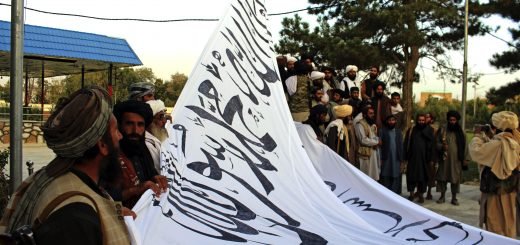COVID-19 “figured out” by Russian scientists

With more and more people around the world becoming infected with coronavirus, most countries are introducing quarantine measures. However, the situation with the spread of the COVED-19 epidemic can hardly be seen as a controlled one.
In Russia, 2,337 people in 71 regions have so far been infected (March 31), with 66 people having recovered and 17 fatalities. The government is doubling down on its efforts to get on top of the situation having additional beds being made available at hospitals, launching a dedicated coronavirus hotline and advising people to self-isolate to avoid contracting the dangerous virus. While doctors are at the forefront of the ongoing fight against the epidemic, scientists are working just as hard analyzing the coronavirus genome in a bid to come up with a vaccine.
On March 27, St. Petersburg State University announced that scientists working at its Bioinformatics and Algorithmic Biotechnology Center had completed the genome sequence of the Russian version of coronavirus SARS-CoV-2.
Few people know anything about science that straddles mathematics and biology, and this is exactly what St. Petersburg State University’s Bioinformatics and Algorithmic Biotechnology Center is dealing with. The university that Russia’s current leader, Vladimir Putin, once graduated from is again at the cutting edge of this country’s scientific thought. By putting together the high-quality genome of coronavirus SARS-CoV-2, the Russian scientists learned how the Chinese version differs from the European one, and specifically the one that is now spreading in Russia. They identified the weak spots in the structure of this virus and parts of the genome, which can help neutralize it.
The coronavirus is mutating and this makes it all the more dangerous. However, Russia is among the countries, which have been the first to stand in the way of the global pandemic and use their very best scientific resources to combat it.
Two St. Petersburg State University researchers, Dmitry Antipov and Mikhail Raiko put all their projects on hold and managed to restore the primary structure of the virus genome in a matter of just two days.

Decoding the genome of a previously unknown virus is not very difficult these days. The hardest part is to process the obtained data, namely, separate the resulting mutations from errors that happen during the process of reading the genome.
However, in a case like this, the St. Petersburg researchers had no right to make a mistake. They believe that “RNA viruses are highly variable and this is why we need to read a large number of virus variants. The accumulated information will help us develop the vaccine.”
Scientists around the world are working on this problem and researchers are studying different variants of the coronavirus. The genomes of more than 1,000 samples from around the world have already been read. Still, information about the new enemy of the human race can never be enough because even though the SARS-CoV genomic sequence is only about 30,000 nucleotides (for comparison, the human DNA contains 3.2 billion pairs of nucleotides), the amount of work to be done was huge, because almost all available information about the virus was raw numbers – more than 18 gigabytes in all, about 100 copies.
Moreover, because of sanctions, Russian laboratories, even those owned by leading research centres, lack the latest equipment and specialized software. Unfazed by this, the Russian scientists have still managed, in collaboration with the St. Petersburg Research Institute of Influenza and researchers from Skolkovo, to completely hack the “Russian” coronavirus and pass the obtained data over to Russian doctors – a big step in the ongoing effort against the global pandemic.
The scientists say that this is not the most challenging project the bio-lab is now working on, as SPbU is capable of solving even more global problems. This being said, we should still admit that few such opportunities for studying the new virus that threatens humanity can be found elsewhere in Russia and in Europe.
By enlisting the support of Vladimir Putin and Dmitry Medvedev, St. Petersburg State University rector, Nikolai Kropachev, did manage to preserve and increase the university’s research facilities. But how many such laboratories can be found at Europe’s leading universities? Sadly just a handful – and this in a situation that demands the use of all available resources to fight the coronavirus pandemic.

Meanwhile, as the head of the research team, Deputy Director of the Bioinformatics and Algorithmic Biotechnology Center, SPbU professor Alla Lapidus noted, “Today, we are running desperately short of highly skilled specialists in bioinformatics, and this shortage becomes especially noticeable in critical situations.”
Unfortunately, this is a problem for all of Europe, the reluctance to finance studies that are not applied. As a result, universities are not getting grants and scientists are moving into business. However, just a few decades ago, universities primarily served as scientific research centres and every university had a bevvy of research labs. As a result, professors were becoming researchers and were more efficiently passing their experience on to their students. Unfortunately, due to the upheavals of the early 1990s, the universities lost a significant part of their research capacity, but Russia’s biggest universities still managed to preserve it. Now it seems that thanks to Soviet traditions that have survived the breakup of the Soviet Union, Russian science can really become the saviour of Europe because, in President Putin’s hometown, the university he once studied at has just made a significant contribution to the fight against the pandemic.



















